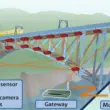Civil engineers and builders collaborate closely in construction to ensure successful project execution. Civil engineers bring their expertise in structural design, site analysis and infrastructure planning; builders offer their hands-on experience in construction techniques, project management and on-site implementation – coming together as an incredibly strong team to execute building projects – including renovations in Townsville – seamlessly. In this article we explore civil engineer’s contributions as supporters throughout a project lifecycle; outlining its benefits.

Pre-Construction Phase: Site Analysis and Design
In the pre-construction phase, civil engineers play an essential role in site analysis by assessing existing structures or land to identify any strengths, weaknesses or potential challenges for their project. Surveys, soil tests and structural assessments may be conducted as necessary for their analysis to provide data for project feasibility reports to builders in Townsville.
Site evaluation involves evaluating factors like soil conditions, groundwater levels, slope stability and existing infrastructure’s capability of supporting planned renovations. Civil engineers ensure the design and construction process adheres to local building codes and regulations; working closely with builders they create site-specific designs which take all these factors into consideration and minimize risks or complications during construction phase.
Design Development and Structural Engineering
Once site analysis is completed, civil engineers collaborate with builders to draft detailed designs and structural engineering plans for renovations. Leveraging their expertise, civil engineers use efficient yet aesthetically pleasing designs while adhering to safety standards – as well as contributing their practical knowledge for finding cost-effective solutions that optimize construction methods, material selection and material selection processes.
As part of this step, civil engineers provide builders with structural calculations, detailed drawings and specifications necessary for renovations to comply with building codes and standards. Furthermore, civil engineers work closely with builders during this stage to address any design modifications or challenges which arise during the build phase – providing technical expertise as necessary to ensure its smooth implementation.
Permitting and Regulatory Compliance
Builders in Townsville undertaking renovation projects rely heavily on civil engineers for help navigating the permitting and regulatory landscape. Civil engineers possess in-depth knowledge of local building codes, zoning regulations and permit requirements; working closely with builders they ensure all necessary permits are acquired to comply with relevant regulations.
Civil engineers provide and submit to local authorities the documentation required for approval, including construction plans, structural calculations and any supporting materials needed for approval, while working closely with builders to address any feedback or modifications requested from regulatory agencies. They help expedite approval by streamlining the permitting process – saving builders both time and effort!
Construction Phase: Quality Assurance and Technical Support
Civil engineers play an essential role in providing quality assurance and technical support during the construction phase. Their presence helps ensure that construction activities align with design specifications, structural requirements and industry best practices. Civil engineers monitor progress of construction as it progresses as well as conduct inspections to verify if their plan and standards are being upheld.
Civil engineers work closely with builders and construction teams during construction to address any deviations or problems with design that arise, providing technical guidance and solutions to overcome challenges to ensure renovation projects meet their desired outcomes. Together they collaborate on any unforseen issues to keep construction on schedule without jeopardizing structural integrity or quality.
Like Us on Facebook!
Also read: Types of Tractor Rakes – The 4 Types of Quality Rakes
Subscribe Us on YouTube!
Risk Mitigation and Safety Considerations
Builders rely on civil engineers to reduce risks and ensure the safety of renovation sites during renovation projects. Civil engineers assess potential hazards and devise plans to manage them; working closely with builders they implement safety measures such as scaffolding, temporary supports and structural reinforcements to safeguard both workers and the general public during renovations.
Civil engineers also partner with Townsville builders in creating comprehensive risk management plans that address potential renovation risks specific to Townsville renovations, such as soil instability, excavation activities and ensuring existing structure stability during construction. By identifying and mitigating risks early, civil engineers assist builders in creating a safer work environment while decreasing potential accidents or structural failures.
Also Read: Solar Batteries : A Step Towards Sustainable Infrastructure
Sustainable Practices and Environmental Considerations
Sustainability and environmental considerations have become an increasing focus in today’s construction industry, so civil engineers work alongside builders to integrate sustainable practices and limit environmental impact of renovation projects. They identify ways of including energy-saving systems, water conservation measures and eco-friendly materials into each project plan.
Civil engineers specialize in assessing the environmental impact of renovation projects and devising strategies to decrease resource consumption, limit waste generation and promote eco-friendly construction practices. Working closely with builders, they implement sustainable features like green roofs, rainwater harvesting systems or energy-efficient HVAC systems that increase overall sustainability of a project.
Post-Construction: Evaluation and Maintenance
Collaboration between civil engineers and builders extends well beyond construction; once renovations have been completed, civil engineers contribute to evaluating project performance and ongoing maintenance requirements as well as conducting assessments to ensure renovations meet specific standards and specifications.
Civil engineers collaborate with builders to devise maintenance plans and schedules that guarantee the longevity and optimal functionality of renovated structures. They advise builders on regular inspections, repairs, upgrades as necessary to uphold integrity and performance while meeting occupant needs for years. This collaboration ensures that newly renovated facilities continue meeting needs while remaining safe and functional for years.
Conclusion
Collaboration between civil engineers and builders in Townsville is integral for successful renovation projects. Civil engineers provide technical expertise, design support, regulatory compliance and risk mitigation throughout a renovation’s lifespan – their contributions ensure structural soundness, sustainability and compliance with local regulations – working hand in hand with builders they play an essential part in providing high-quality renovations that meet clients’ expectations as well as contribute to overall development of built environments.





















